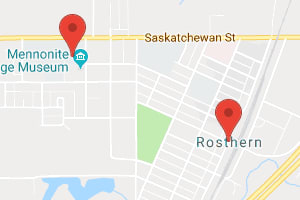
The regions RJC offers busing from are:
Additional notes: We offer a shuttle service to pick up students around the area for $100/month
How we see Rosthern Junior College High School
Compare with:
How Rosthern Junior College High School sees itself
"Founded in 1905, Rosthern Junior College (RJC) High School has a strong reputation for delivering well-rounded academic experiences to students for over 100 years. RJC offers Grades 10-12, and is accredited by the Saskatchewan Ministry of Education and a member of the Saskatchewan Association of Historical High Schools; holding a high standard of education. As a high school that teaches from the Christian perspective, RJC places value on faith, service, leadership, and community in the education of its students."
"A distinctive of RJC from other boarding high schools is our focus on cross-curricular and interdisciplinary learning. Our goal is for students to learn more about themselves and the world around them through the courses they take. This is done through our grade-based initiatives (Grade 10 IMAGINE, Grade 11 THRIVE, Grade 12 EXPLORE). In these programs, RJC utilizes academic best-practices and community partners to offer unique, out-of-the-classroom learning experiences."
"Families often choose RJC because of the tight-knit community and small class sizes. In this environment, students find belonging and grow in their confidence and ability. The strong relationships between students and staff often lead to academic and personal success of the students."
"An underrated aspect of RJC's school community is our focus on student health and wellness. This is done through our student BELONG program, led by our dormitory deans. All RJC students have access to diverse academic, physical, and emotional supports during their time as a student. Included in this is an incredible meal plan, which offers healthy and diverse food options for students. If students require additional supports, they are welcome to connect with the VP of Student Life."
"The level of participation in school activities is very high at RJC. In a typical year, approximately 80% of our students are involved in the athletics program, 91% are involved in the music and arts program, and 80% of RJC students join a school club. We believe when students are invested and involved in activities they are able to thrive in all aspects of learning."



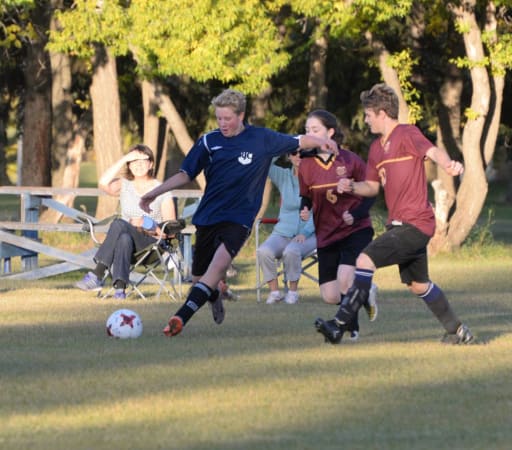





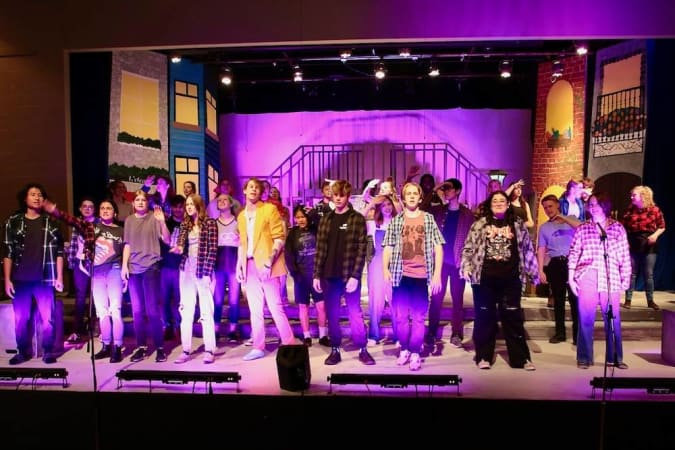




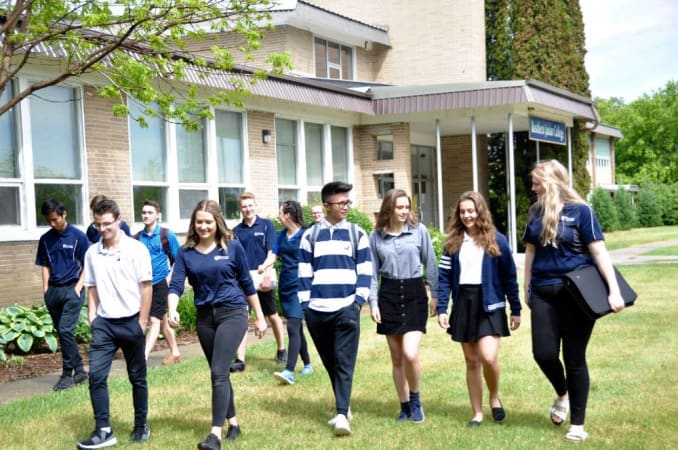
The main school building
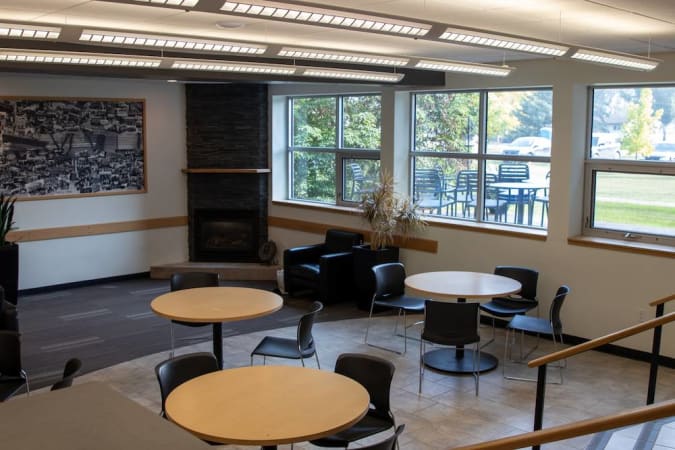
Our historic building on campus

Students outside the on-campus dormitory



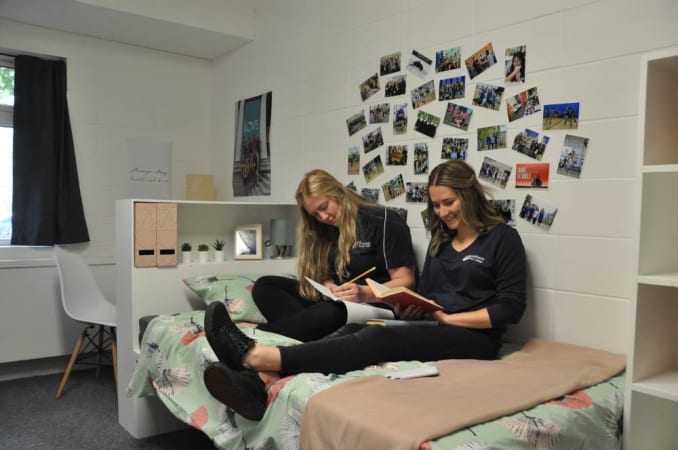
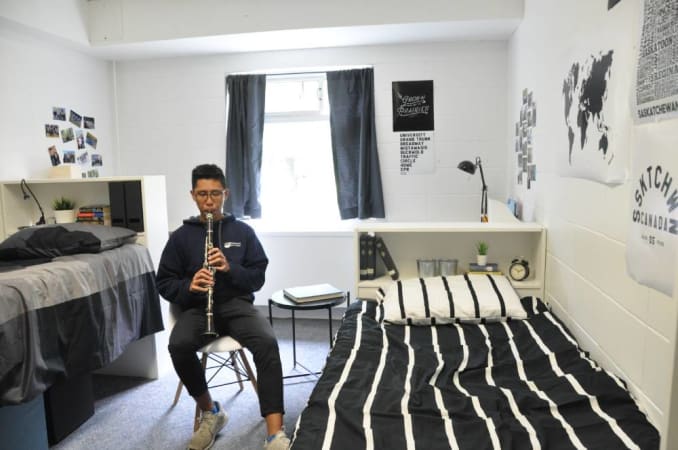
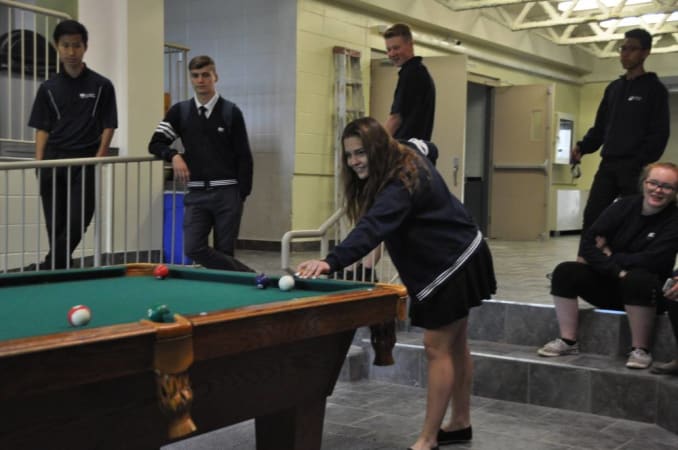



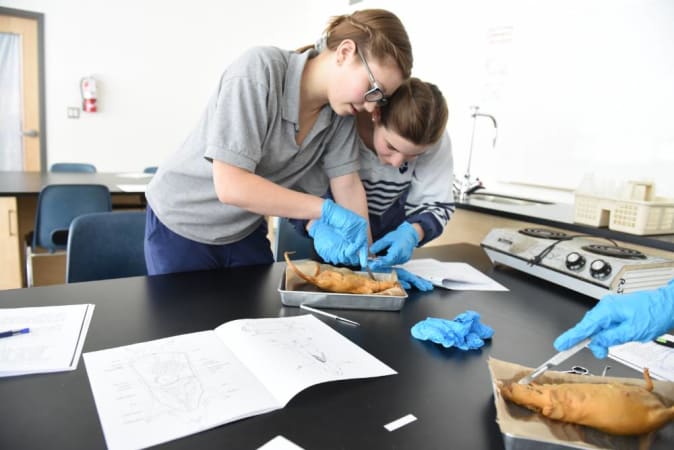



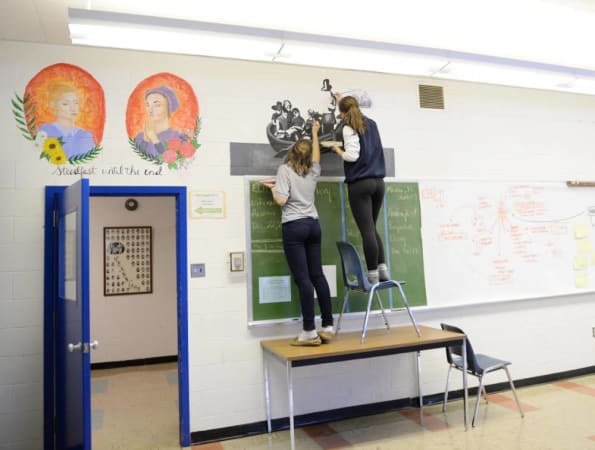
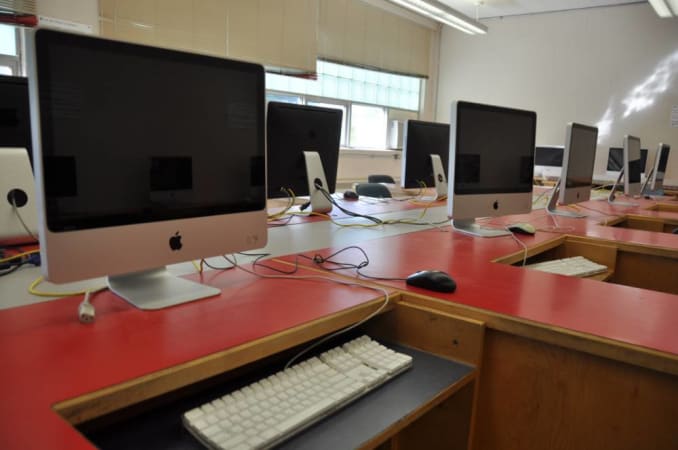










How people from the school’s community see Rosthern Junior College High School
Top-down influence on the school’s direction and tone

Ryan Wood, Principal
Masters of Education
Welcome to RJC High School! We are a small school that makes a big difference. Our small class-sizes, supportive staff and student-centered programming allow our diverse student body to meet a variety of personal and academic goals, all within the safety of a supportive community. We have an excellent dormitory program, along with many opportunities in athletics and the arts. We pride ourselves in educating the whole person and in preparing leaders for a life of faith, service and peacemaking. We are excited about the impact our students make in the world, and the success that they achieve in their personal lives. If you are looking for a place that combines educational excellence with personal growth and making a difference, join us at RJC High School!
Sincerely,
Ryan Wood
Principal, RJC High School
If you’re considering a small school for your extroverted child, make sure it offers plenty of social opportunities, including the ability to seek out and interact with different peer groups. Since smaller schools have smaller and less diverse student populations than big schools, it can sometimes be more challenging for your child to find a like-minded group of friends—friends with similar interests, values, etc.
“It’s important to look at the social makeup of the school,” says Ruth Rumack of Ruth Rumack's Learning Space. "Is there enough variety that your child will have a group that they feel connected with? Because you want to have friends that are like-minded and you want to be in a social situation where you feel honoured and respected. Variety can also be found in extracurriculars, leadership programs, and sports activities, which tend to have kids with a wide range of personalities.”
Also, make sure a school’s teaching and learning approach is suitable for your social child. “For instance, a school focusing on individual learning instead of group learning may not play into your child’s strengths,” say Ann and Karen Wolff, Toronto-based education consultants at Wolff Educational Services. “You want to make sure the social, emotional, and academic realities of the classroom are a match for your child’s personality.”
At a boarding school, your extroverted child will likely enjoy seeking out and interacting with peer groups from different backgrounds, away from home. In fact, studying and living with other kids for an extended period of time, as many alumni tell us, provides the unique opportunity to form close relationships that can last well beyond the school years. Many boarding schools also have large student populations and more extracurriculars—including activities like student council, team sports, and arts programs—which will give your outgoing child a broader scope of opportunities to feed off the energy of others, and possibly even become a leader, in a dynamic environment.
Keep in mind, though, “Being an extrovert can be a catalyst for getting involved in lots of activities, which can sometimes be hard to manage,” says Joanne Foster, Toronto-based education consultant and author of ABCs of Raising Smarter Kids. “For instance, a particularly extroverted child may try to end up juggling too many people and activities. While they still may thrive at a boarding school, it helps to know your child and how much social interaction they can handle comfortably.”
Smaller schools often have small classrooms and tight-knit communities, which can make it easier for your introverted child to come out of their shell, make friends, and feel like they belong. Since they’re less socially overwhelming, your child should find it easier to navigate their social environment. And since they’re conducive to group work, small classes often have plenty of interaction, which can help your child develop critical interpersonal skills.
Of course, small schools normally have a less diverse student population than big schools, which can sometimes make it more challenging to find a group of like-minded peers—peers with similar personalities, interests, values, etc. This makes it especially important to ask a school about its extracurricular programs, which can help your introverted child establish an intimate social circle.
At a boarding school, your introverted child will be more motivated (and virtually compelled) to seek out and interact with different peer groups. Away from home and in a new environment, they’re more likely to take the initiative to form close friendships, which can boost their independence and confidence, and help them develop critical social skills.
"Consider, though, whether your child will be comfortable and confident while living away from home, and while having to navigate the various, and sometimes unforeseen social-emotional experiences, alongside the academic challenges,” says Joanne Foster, education expert and author of ABCs of Raising Smarter Kids. Finally, ensure support systems are in place to promote their social and emotional development, and that your child is willing and prepared to take advantage of them. Your child will often need to advocate for themselves at a boarding school, and they’ll need confidence and perseverance to do so.
THE OUR KIDS REPORT: Rosthern Junior College High School
Next steps to continue your research:
Continue researching Rosthern Junior College High School with OurKids.net, or visit school website.